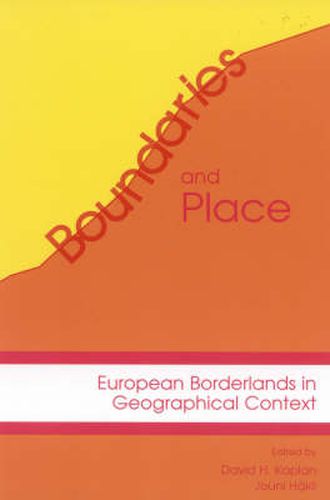Readings Newsletter
Become a Readings Member to make your shopping experience even easier.
Sign in or sign up for free!
You’re not far away from qualifying for FREE standard shipping within Australia
You’ve qualified for FREE standard shipping within Australia
The cart is loading…






Examining contemporary cultural and political changes in Europe as they are reflected in the region’s borderlands, this analysis combines the classical heritage of boundary studies with an understanding of the social construction of borders. The text employs a variety of perspectives on globalization, the rise of national and ethnic identities, contemporary European integration, and the enlargement of the EU. Utilizing case studies that stretch from Lapland to Italy, from Serbia to Northern Ireland, the contributors draw upon border study methodologies ranging from survey questionnaires to discourse analysis, from landscape studies to the exploration of cultural texts. They pay particular attention to the role of geographical scale, identity, history, and social and economic contexts in the dynamic evolution of European borderlands. Throughout, the work explores how borderlands are experienced by ordinary people and employed by institutional actors in charge of cross-border co-operation.
$9.00 standard shipping within Australia
FREE standard shipping within Australia for orders over $100.00
Express & International shipping calculated at checkout
Examining contemporary cultural and political changes in Europe as they are reflected in the region’s borderlands, this analysis combines the classical heritage of boundary studies with an understanding of the social construction of borders. The text employs a variety of perspectives on globalization, the rise of national and ethnic identities, contemporary European integration, and the enlargement of the EU. Utilizing case studies that stretch from Lapland to Italy, from Serbia to Northern Ireland, the contributors draw upon border study methodologies ranging from survey questionnaires to discourse analysis, from landscape studies to the exploration of cultural texts. They pay particular attention to the role of geographical scale, identity, history, and social and economic contexts in the dynamic evolution of European borderlands. Throughout, the work explores how borderlands are experienced by ordinary people and employed by institutional actors in charge of cross-border co-operation.